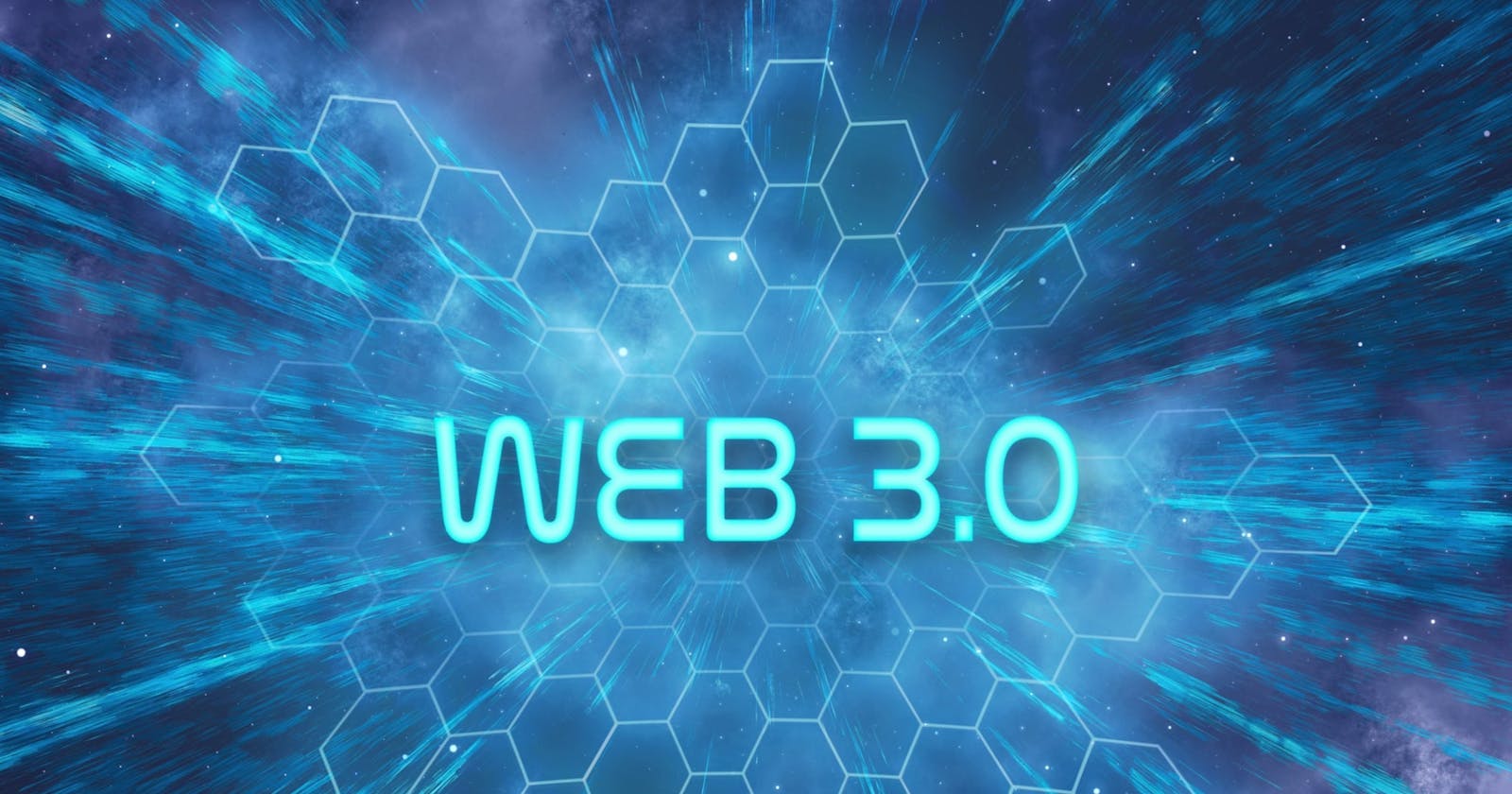If you are reading this that means you are going to know what the future of the internet going to look like. You may have heard about Web3 because of its hype around us. It is also referred to as the next generation of the internet built on the BlockChain technology but what is it? and most importantly why do we even need it?
In this article, I am going to tell you how the web has evolved over the years, what opportunities it provides, and what should be our mindset to avail of those opportunities.
Evolution Of Web Over The Years:
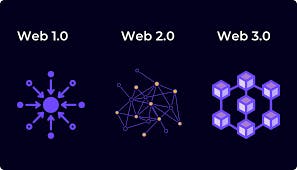 Over the years the Web has revolutionized from Web 1.0 to Web 3.0, upgrading in many aspects and providing a better experience to the user.
Over the years the Web has revolutionized from Web 1.0 to Web 3.0, upgrading in many aspects and providing a better experience to the user.
Web 1.0 : The Past
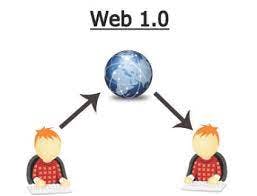 Web 1.0 was the first iteration of the World Wide Web. During Web 1.0 the users were only the consumers of the content and the creators were the developers and programmers who build the websites. The websites mostly contain static pages consisting mainly of text or image format. The biggest disadvantage of Web 1.0 was that it was only "read-only web", there was no interaction at all.
Web 1.0 was the first iteration of the World Wide Web. During Web 1.0 the users were only the consumers of the content and the creators were the developers and programmers who build the websites. The websites mostly contain static pages consisting mainly of text or image format. The biggest disadvantage of Web 1.0 was that it was only "read-only web", there was no interaction at all.
Web 2.0 : The Present
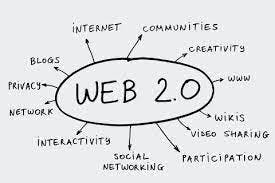 The Web we are currently using is Web2.0, In the Web 2.0 world, anyone can participate in a creative process without the need to be a developer. Many apps are built in a way to let anyone become the creator. Web 2.0 is also known as "The participative Social Web", Web 2.0 easily replaces Web 1.0 because of the ability to interact with the user.
The Web we are currently using is Web2.0, In the Web 2.0 world, anyone can participate in a creative process without the need to be a developer. Many apps are built in a way to let anyone become the creator. Web 2.0 is also known as "The participative Social Web", Web 2.0 easily replaces Web 1.0 because of the ability to interact with the user.
If Web 2.0 is good enough then why do we even need Web 3.0??
Well, there is always space for upgrading and betterment and Web3.0 is providing a lot of upgrading in technical aspects.
Web 3.0 : The Future
 Web 3.0 is a more intelligent beast. It is defined as 'read', 'write' and 'execute' , using decentralized blockchain-based platforms. The key point that distinguishes Web 3.0 is the concept of decentralization. Web 2.0 has been governed by centralized authorities like the FAANG or Big Tech, Web 3.0 would revolutionize this system by setting up a decentralized system. Web3.0 is about grabbing some power back from these big tech companies.
Web 3.0 is a more intelligent beast. It is defined as 'read', 'write' and 'execute' , using decentralized blockchain-based platforms. The key point that distinguishes Web 3.0 is the concept of decentralization. Web 2.0 has been governed by centralized authorities like the FAANG or Big Tech, Web 3.0 would revolutionize this system by setting up a decentralized system. Web3.0 is about grabbing some power back from these big tech companies.
Some other characteristics of Web 3.0 that would enhance the internet.
1) Trustless
2) Self-governing
3) Permissionless
4) Distributed and robust
5) Native built-in payments
Do We Really Need Web3.0:
There are many reasons behind the hype around Web3.0, let's see a few of those reasons.
1) Elimination Of The Central Point Of Control:
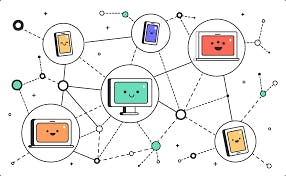 The blockchains like Ethereum and Solana provide a trusted platform in which the data is distributed in different nodes, is fully encrypted, and the rules are unbreakable. Hence the big tech companies will no longer be in control of the user data and no single entity can control the identities of others.
The blockchains like Ethereum and Solana provide a trusted platform in which the data is distributed in different nodes, is fully encrypted, and the rules are unbreakable. Hence the big tech companies will no longer be in control of the user data and no single entity can control the identities of others.
2)Permissionless BlockChain:
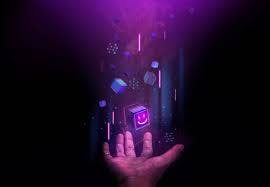 Any user can create an address and interact with a blockchain network without the fear of any restriction. Users can also transfer their digital assets and wealth efficiently anywhere in the globe.
Any user can create an address and interact with a blockchain network without the fear of any restriction. Users can also transfer their digital assets and wealth efficiently anywhere in the globe.
3) Fewer Interruptions:
 As all data will be stored on distributed nodes because of the decentralized system, users will not have to worry about account suspensions or service disruptions due to technical or any other type of reason.
As all data will be stored on distributed nodes because of the decentralized system, users will not have to worry about account suspensions or service disruptions due to technical or any other type of reason.
The Opportunity Web3.0 Is Providing:
 The Web3 ecosystem is expected to grow by more than 40 percent per year, leading to a growth in blockchain technology market capitalization means it has great potential but still Web3 is in its early periods. We can find a lot of opportunities only in the decentralization of transferring value. If we talk about a real-world example, consider a no trusted land anywhere in the world if there is an internet, based on a blockchain protocol it is possible to build up a land registry that allows the direct transfer of value without compromising citizens' control over their data and assets. And that is just one example.
The Web3 ecosystem is expected to grow by more than 40 percent per year, leading to a growth in blockchain technology market capitalization means it has great potential but still Web3 is in its early periods. We can find a lot of opportunities only in the decentralization of transferring value. If we talk about a real-world example, consider a no trusted land anywhere in the world if there is an internet, based on a blockchain protocol it is possible to build up a land registry that allows the direct transfer of value without compromising citizens' control over their data and assets. And that is just one example.
The Mindset We Need For Web 3.0:
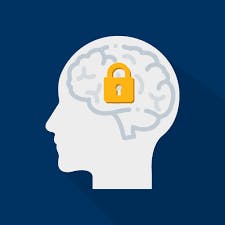 Web3.0 is obviously new and definitely be confusing for many but the revolution it is bringing in technical aspects we should be trying to understand with an open mind. If the world and society do not adopt and agree on the principles of Web 3.0, it runs the risk of continued corruption and eventual failure by central authorities.
Web3.0 is obviously new and definitely be confusing for many but the revolution it is bringing in technical aspects we should be trying to understand with an open mind. If the world and society do not adopt and agree on the principles of Web 3.0, it runs the risk of continued corruption and eventual failure by central authorities.

